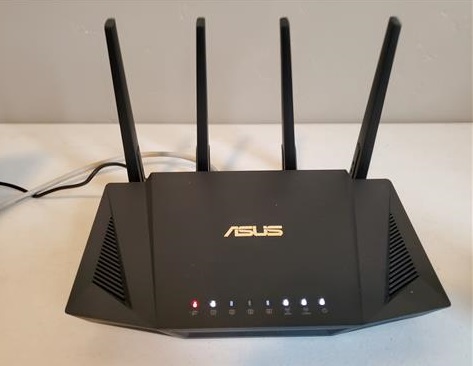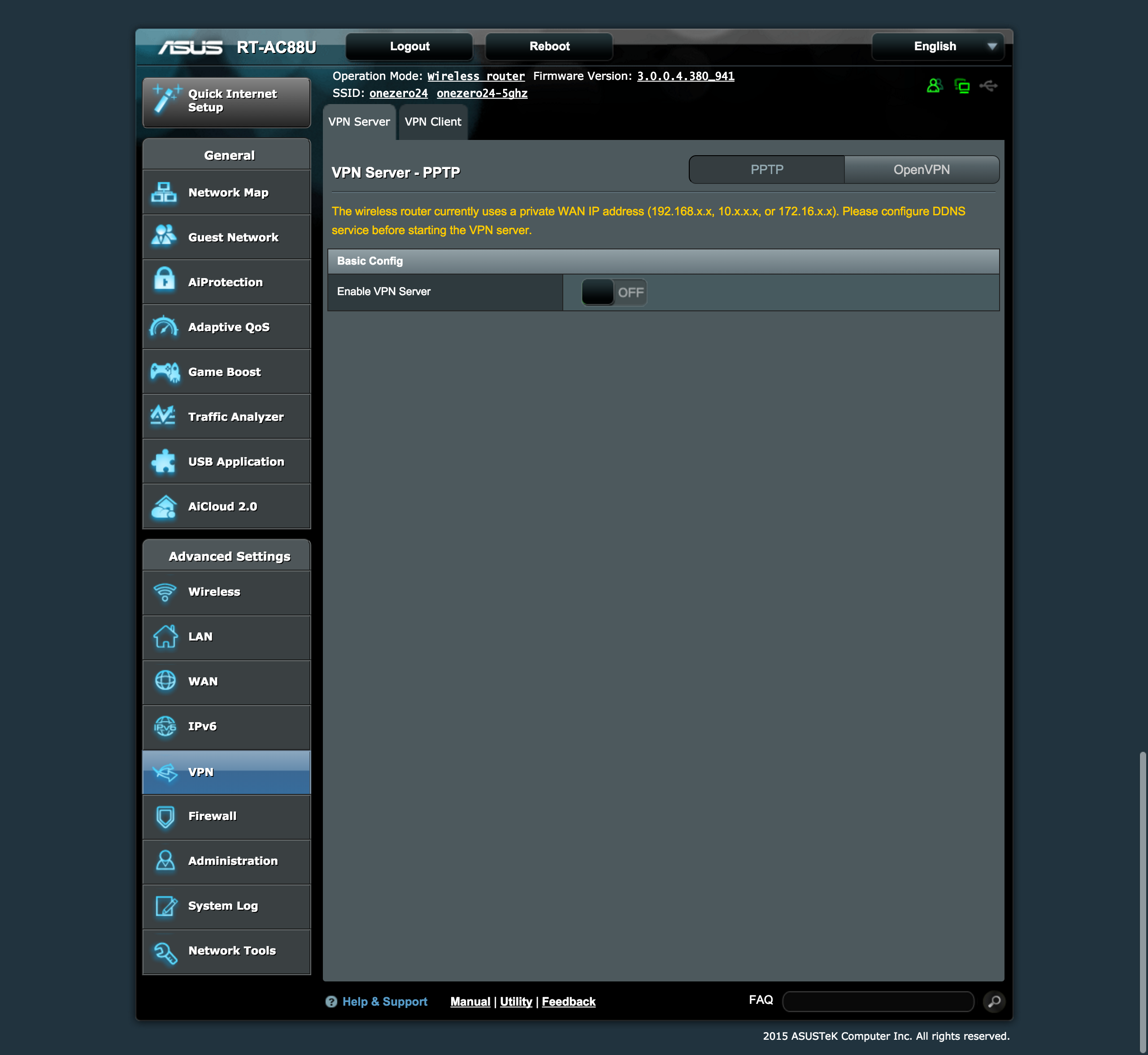
#Asus router vpn download#
That being said, here, you can view the installation guide of every platform, select the Protocol (UPD or TCP) and, lastly, you will see available the Download links for the Secure Core configs of every supported country. Be aware that your Asus router needs to support OpenVPN clients to be able to work with ProtonVPN (also, the provider says that it does not support versions earlier than OpenVPN 2.4 due to being considered unsecure). Download the configuration files – To do so, you need to head over to the Downloads section and scroll down until you reach the OpenVPN configuration files. Create a ProtonVPN account – I can’t really help that much in this regard, but you do need to create an account using a valid email address and then you should get access to the user page (the first window being the Dashboard).Ģ. I use an Asus RT-AX82U (you can judge all you want, but, yes, it’s because I liked the RGB lights) and the process is the following: 1.
#Asus router vpn how to#
How to install ProtonVPN on an Asus router But, since I got ProtonVPN and an Asus router, I decided to do this quick guide on how easy it is to configure everything at the router level. There are other VPNs that have proven their value when the court forced them to provide something they did not have (user logs), so check IPA, ExpressVPN or other reliable VPN as well since they work great.
#Asus router vpn free#
The general idea is to not use free VPNs since these services are usually not well kept by their providers and may lead to data leakage. What’s interesting is that apparently a court can force a provider to start keeping logs of a particular user ( see this case with ProtonMail), so we’re not really completely safe with a VPN, but it’s still a step forward towards regaining some semblance of digital privacy. A good VPN will not keep user logs, so they have nothing to offer to any of the entities that may force them even in court.

There are always news about how a specific VPN has exposed the user data to the government or other third-parties, but that can only happen if they keep logs of their users. That’s a seemingly tough question and the general answer is yes, but you do need to check who the company that you’re paying for the service is and whether it has a history of being reliable. This way, the ISP will not longer be able to see specifically what you’re doing (and what you access), just that you are only an active client of their service and nothing more (as things should be). The VPN will stand between your network and the webpage that you need to access, and yes, the connection is indeed encrypted. A VPN can at least stop some of the tech entities from invading our privacy without proper consent and it does so by hiding our IP address. It’s an interesting read and it shows that we are essentially leaking data from all over without seemingly a way to stop it.

The point that pushed me beyond entertaining the idea of permanently using a VPN to actually going with ProtonVPN was the news about how the major ISPs in the US handle our data and yes, it’s a proper study conducted by the FTC and you can read it here. But, there is actually a point to using a VPN beyond just simply being able to check out content that has been geo-blocked. I know that you have been bombarded by VPN ads on most YouTube videos and there has been a slight normalization of using one, while people have been chanting the same list of advantages again and again.


 0 kommentar(er)
0 kommentar(er)
